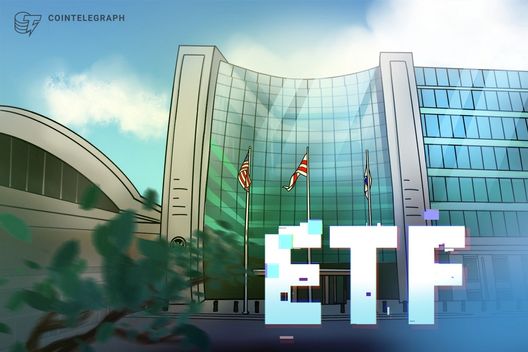The bustling world of cryptocurrency is abuzz this October as the U.S. Securities and Exchange Commission (SEC) prepares to consider 16 applications for cryptocurrency exchange-traded funds (ETFs). These submissions represent a significant moment in the evolution of digital asset investment, potentially laying the groundwork for a new regulatory framework that could accelerate the approval process for various cryptocurrencies, including Solana and XRP.
Analysts are closely watching this development, as the SEC’s decisions could have far-reaching implications for the entire market. The prospect of a streamlined approval system may invite a wave of institutional investment, which has often been hampered by tight regulations and uncertainty surrounding digital assets. Historically, the SEC has approached cryptocurrency ETFs with caution, reflecting the complexities and risks posed by these assets.
“This October could mark a turning point for cryptocurrency in the United States, reshaping how investors view digital assets,”
said a financial expert. The potential change opens the door for broader access to cryptocurrencies via traditional investment channels, potentially enhancing liquidity and market participation. As Solana and XRP gear up for this regulatory scrutiny, market participants are more eager than ever to see how the SEC’s actions will unfold, with many hoping for a more favorable regulatory environment that aligns with growing public interest in cryptocurrencies.
With increased attention on the SEC’s upcoming determinations, this pivotal period may herald a shift in the narrative surrounding cryptocurrencies in the U.S. market, fostering a culture of acceptance and investment in what has been dubbed the digital money revolution.
Impact of Upcoming Crypto ETF Applications on US Markets
Key points regarding the potential impact of the 16 crypto ETF applications on the SEC’s October calendar:
- Increased Approval Likelihood: New regulatory frameworks may expedite the approval process for crypto ETFs.
- Market Pivotal Shift: Approval of crypto ETFs could signify a critical transition in the US financial landscape.
- Potential Boost for Major Cryptos: Coins like Solana and XRP may see increased interest and value if ETFs are approved.
- Investor Accessibility: Crypto ETFs would provide traditional investors easier access to cryptocurrencies.
- Regulatory Clarity: A new framework may offer clearer guidelines, benefitting investors and companies alike.
These developments could lead to significant changes in how cryptocurrencies are perceived and integrated into traditional finance.
Potential Approval Surge: The Future of Crypto ETFs in an Evolving Regulatory Landscape
The crypto landscape is on the brink of significant transformation, especially with 16 exchange-traded fund (ETF) applications lined up for review by the SEC this October. This influx suggests that regulatory bodies might finally be gearing up to embrace digital assets more fully, unlocking potential advantages for prominent cryptocurrencies like Solana and XRP. If the SEC unveils a streamlined regulatory framework, it could provide a robust pathway for these assets to gain broader institutional acceptance.
In comparison to other news in the crypto sector, the discussion around these ETFs highlights a competitive edge in terms of increasing market credibility and stability. While other cryptocurrencies have struggled to attain institutional trust, the potential approval of these ETFs could act as a game-changer. This may attract a new wave of investors looking for safer, regulated avenues to participate in the crypto revolution. However, the downside remains: if the SEC imposes stringent compliance requirements, it could stifle the enthusiasm surrounding these products and deter smaller investors who may find the barriers to entry daunting.
Moreover, such regulatory clarity may pose challenges for existing crypto projects that haven’t yet aligned with formal compliance structures. As larger entities pivot towards standardization, smaller players may struggle to adapt, potentially leading to heightened market consolidation. The beneficiaries of this shift are likely to be the established cryptocurrencies and larger investment firms poised to capitalize on this new framework, while emerging projects could find the pathway to success significantly more complicated and fraught with competition.
















